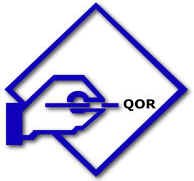By Dr. Yusuf O. Al-Azhari
 Somalia’s misfortune and inability to find a viable solution to its Political mess dragged on during 2009 and 2010; two years with many political façade, blood shade and massive displacement has just ended.
Somalia’s misfortune and inability to find a viable solution to its Political mess dragged on during 2009 and 2010; two years with many political façade, blood shade and massive displacement has just ended.
Many speculations and facts have either been written or narrated through the media in these two years, with some positive and negative aspects about the survival future of Somalia, as one united country. Several diverse personalities with unique and divers propensity have been awarded the chance for leadership to steer Somalia out of the dearth of a formal Government in the past two decades. Somali public expected from them the establishment of a sustainable and constructive mechanism to heal the agony of the people and re-invigorate National Institutions that vanished since the collapse of the constitutional Government in 1991. Such trials though all bear certain good faith intuitions from those sectors that sponsored or supported them; nevertheless, they demonstrated weak leadership and an eventual collapse of their policy management modus. Not because they were not Somalis who were not committed to end the political quagmire in Somalia, but simply they miscalculated the density of destruction and the capacity needed to rebuild sound functional Government that would unite the Nation and replenish peace and prosperity as it ones was.
The tribal fragmentation and mistrust created in those twenty years of anarchy, the lack of locally collected revenue to rebuild the Institutions and pay salaries made it impossible for the leaders to comprehend where to commence from, to forge the country ahead. Moreover the lack of law and order and the continuous war, waged by Al-Shabab and its affiliates denied any leadership the chance to sponsor peaceful Reconciliation, of any kind and dragged them deeper into the conflict. As a result those in office were pushed to surrender their power politic which meant to be impartial among all the Clans, to their blood kin seeking their full support to keep them in power.
The collapses of the first Government leadership Administration ensconced in Djibouti, was due to an emotional unrealistic promises and expectations followed by bitter disappointments. Those entrusted with the task failed to achieve their goal by relying on amorphous division of power sharing, based on impractical clan equality, instead of constituency plinth of land scope habitation or density of population in an area. Thus the vision they had to employ on Governance, based on their political cogitation was incompatible with the political modus perceived by the majority of the Somali population. Their major failure was the surrendering of the political apparatus to an imponderable strategy based on pervasively bellicose tribal division; seeking commensuration through unrealistic power sharing among Somali Clans, thus doffing National loyalty and hierarchy discipline. Such formulae of power sharing created aloofness on cabinet members because they relied on tribal backing no matter what they did, which was to a major extent rejected by most liberal minded and intellectuals with in the society.
Somalis saw tribal affiliation of such kind would never be conducive to bring any viable solutions to the deteriorated impolitic system prevailing in the country. Those who have buoyed such notion and ruminated that the tribal commensuration was the solution soon perceived they were wrong and Governments ensconced on that philosophy was found unable to move its policy forward. And its endurance was devastated from the first year they were in office and finally the leadership had to abdicate.
Subsequently the appearance of leadership sponsoring National Federal Government whose political agenda seemed acceptable to the majority of the Somali Nation, with a very ambitious program seemed to provide a change that would at last set the country on the right political track, but it also failed from the inception due to three main reasons.
a) The agreed upon criteria of power sharing based on 4.5 was applied like the preceding Government which was solidly inculcated into the Charter thus making it mandatory to implement as a conceptual formulae by every Government; because it was adopted by the Transitional Federal Parliament and turned in to Law. It was therefore apparent from the commencement that the distribution of the cabinet portfolio was on tribal equality proportions, which soon haunt the new administration and made it nonfunctional.
b) The political perception of those appointed varied and the Cabinet lacked team work of same National vision, but rather revered to group interest pattern, demonstrating, to many Somalis that it was pursuing the same failed trend of the previous Government. The Cabinet Ministers were at log head with the PM and the PM was in disagreement with the Head of State, stagnating the function of the Government.
And c) The mistrust among the various Clans soon infiltrated deep into the Government leadership by some Somali speculators strengthened with the involvements of foreigners with their own agenda which further heightened antagonism with in the leadership of the Government.
Moreover the invitation of the Ethiopian Forces for intervention in the early stages of the new Government and the quick change of the seat of the Government to Mogadishu exasperated the situation to the worst which accelerated the pressure from certain unsatisfied Somali groups whose aims was motivated to get the chance to replace the leadership, with the support of the International Community, which brought about the resignation of the President before completing his mandated period.
Despite all the negative aspects of the Government formation, the leadership seemed to be much more dynamic and organized from the previous one. The new Administration embarked upon establishing a capable security apparatus and relatively better system of Governance which enabled it to bring large portion of the Somali Territory under its domain. Choosing of Baidoa as its transitional capital till Mogadishu was liberated gave it more leverage to move freely, extending its influence throughout the Regions North of Mogadishu. Trade opened up from Bosaso at the Gulf of Aden to Mogadishu and beyond connecting 14 out of the 18 Regions of the country for the first time since the collapse of the Somali Government Institutions.
Then the widely applauded team of the present reigning leadership was ensconced in Djibouti with the hope that it will finally ferret out the hitherto unsolvable Political
Quagmire. Colossal margin of the Somali population, the neighboring countries and the International Communities were all in full support and expressed readiness to assist the new administration not to fail this time. Regrettably the high hopes contrived and the promises were soon followed by bitter disappointments. The new leadership faced similar obstacles. Members of the Cabinet and the President were in confrontation and that pave the way for an urgent formation of a new Government. As a result the Prime Minister and his Cabinet resigned after mistrust between the leadership reaching point of no compromise.
To remedy the failure the President wisely this time opted to appoint academician technocrats, with high education profile, lest they will finally find the magic solution to the incurable Political epidemic that haunted the country for over two decades. Somalis from all walks of life extolled the choice and with blessings supported the new Prime Minister and his technocrat academician entourage Cabinet; convinced that given the chance they are the most qualified to at least set the country on the right political track by opening a new Political vista that could satisfy both the Adversaries and the public and bring them all on board. However to the dismay of everyone it appears not to be so. It seems rather that they are the wrong group at the wrong time in the wrong place. The reason being that technocrats are the sifted intellect of the Nation while those confronting them are ruthless extremist; and the two could not be in one basket or share same vision to find an agreeable solution to the strongly churned Somali Political mess. Secondly the new Cabinets’ appointment followed similar tribal pattern of power sharing which stagnated all preceding Administrations. Hens its failure is eminent,
Moreover what has always been lacking since the collapse of the National Government is the role of those highly qualified and experienced group, of the Traditional Leaders, the Elders and the Empowerment of the Women who are more expert than any group, in handling the National problems when it is churned in its present strong vehement violence. Any Government which minimizes the role of these groups will never succeed to disentangle the present scathing and devastating situation. Somalia’s political stalemate could only be solved in a joint effort combining the civil society and the Government.
In conclusion the basic political situation of Somalia at the end of 2010 is one of persistence of fragmentation and conflict among the various power groups. It is indeed basinful shame if we demonstrate hubristic boastfulness at any standard of having achieved any success in finding any tangible solutions to our mess. However that does not mean Somalia lack qualified Leaders that could with resolve and firmness reclaim the unity of the Nation and ensconce a viable Democratic Government that would restore National sovereignty over its territory, fully adhere to the new world order to leaving in peace with rest of the world. However one of the main obstacles facing Somalia is, Leaders who could deliver and possess the knowledge and experience do not have the means to be noticed and those who have the means could not deliver because they lack the resolve and the experience of Governance. Nevertheless our aspiration and sincere wish is that 2011 will be different and would bring peace, stability and unity to this obliterated country
The writer is veteran civil servant and creed diplomat: Email geeska23@yahoo.com




































comment closed after 30 days / Jawaabaha waa la xiray ama waa la joojiyay wixii ka badan 30 cisho.